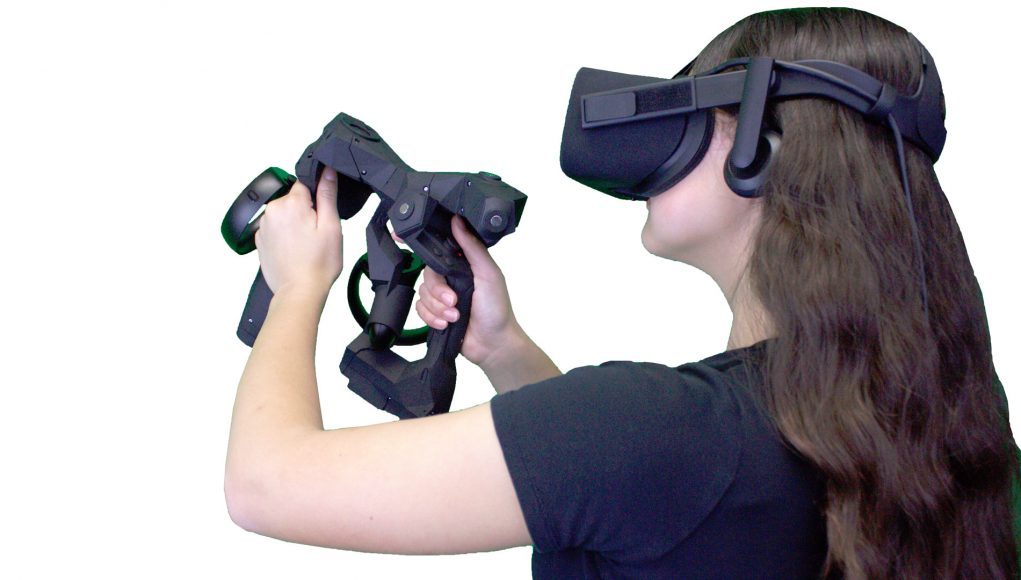Tactical Haptics’ newly developed haptic controller prototype uses mechanical sockets that allow them to be mated in different configurations on-the-fly, in order to match a particular virtual interaction more closely than standard VR motion controllers. The controllers incorporate the company’s ‘Reactive Grip’ technology, a unique form of haptic feedback.
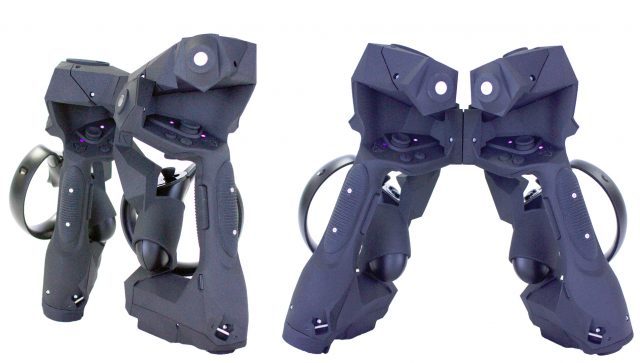
San Francisco-based Tactical Haptics is debuting its reconfigurable haptic controllers together with new demo content at CES this week. The hardware is based on the haptic controllers used for Justice League: An IMAX VR Exclusive that has operated at the Los Angeles IMAX VR Centre since November 2017, but with the ability to be mated together in common interaction configurations, such as ‘gamepad’, ‘steering wheel’, or ‘machine gun’ poses.
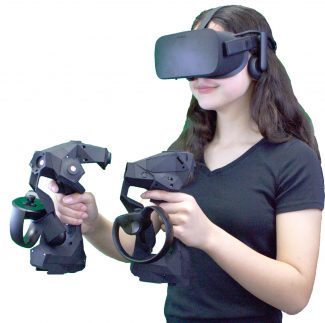
As described in the press release provided to Road to VR, the mechanical sockets (which appear to be fitted with magnets) “provide a mate-point … to form a semi-rigid coupling between the controllers that allows the users to effortlessly maintain the mated poses.” The images are shown with Oculus Touch controllers for tracking purposes, but they also have mounts for Vive Trackers.
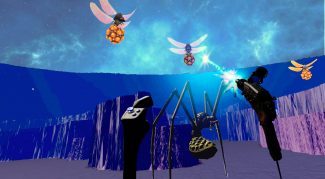
Colony Defense, a new game developed by Tactical Haptics to demonstrate the hardware, is a first-person experience with building and combat elements. The player is asked to join the two controllers to create a ‘physics gun’, then separate the controllers to operate a jet pack and weapon each hand, and the option to combine the controllers in the ‘machine gun’ configuration to operate a heavier blaster. The company says that “significant effort” was put into optimising the placement of the sockets to result in ergonomic poses and to aid on-the-fly reconfiguration while wearing a headset.
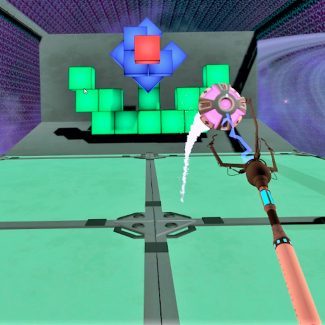
A new “brick breaker” style game called Cyber Smash is also at the show, which the company says demonstrates “feeling the inertia of throwing smash-balls and settling of the ball after it rebounds and is caught by the player.” As highlighted by the IMAX VR Centre partnership, the company is currently focused on location-based entertainment, and is working on multiplayer versions of both games for this purpose. It is seeking partner opportunities with high-profile LBEs while at CES this week.
Both games make use of Tactical Haptics’ core innovation: an advanced haptic feedback technology called Reactive Grip, showcased in various prototype controllers since 2013. Actuated plates in the controller’s handle apply friction and shear forces in the hand, creating various tactile illusions such as inertia and elasticity.
Stay tuned to Road to VR for further coverage of CES 2018, including a hands-on with the new Tactical Haptics controller prototype.

